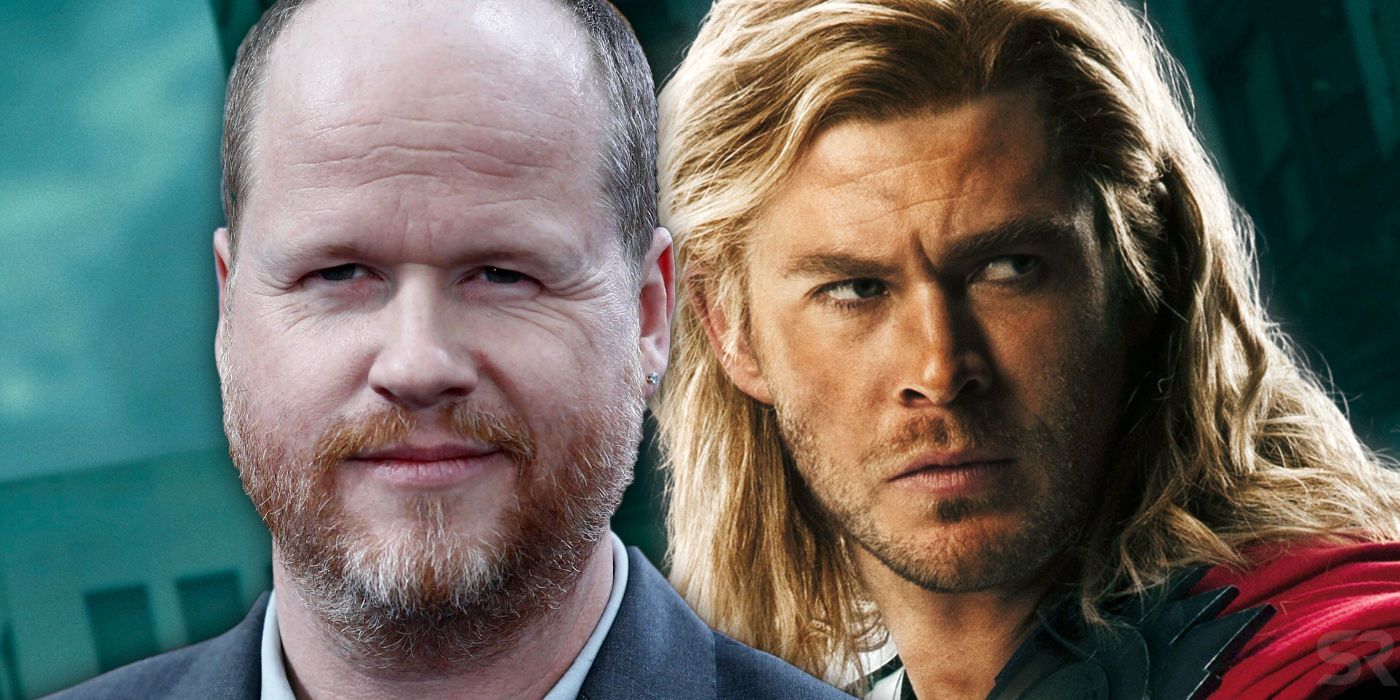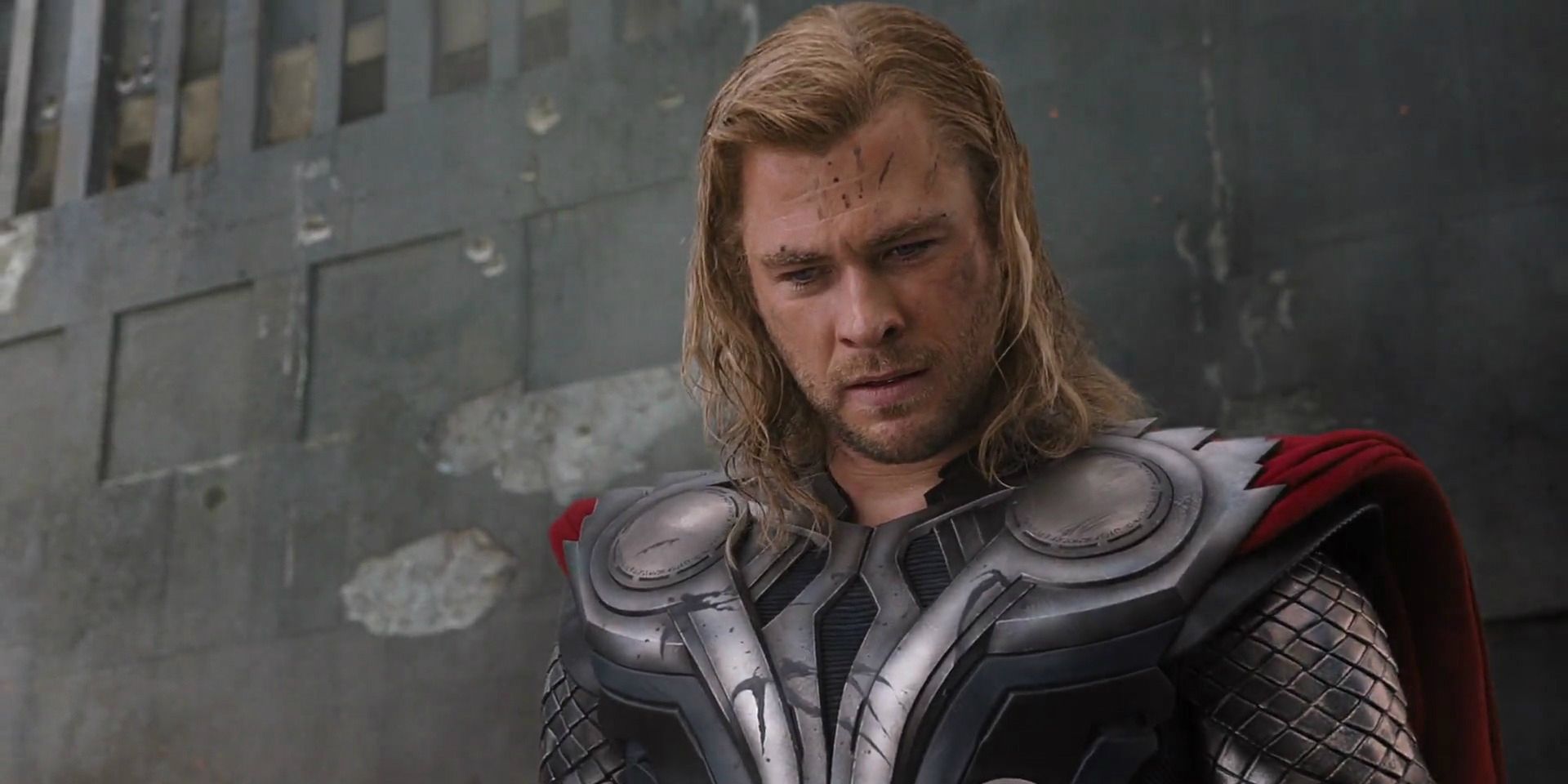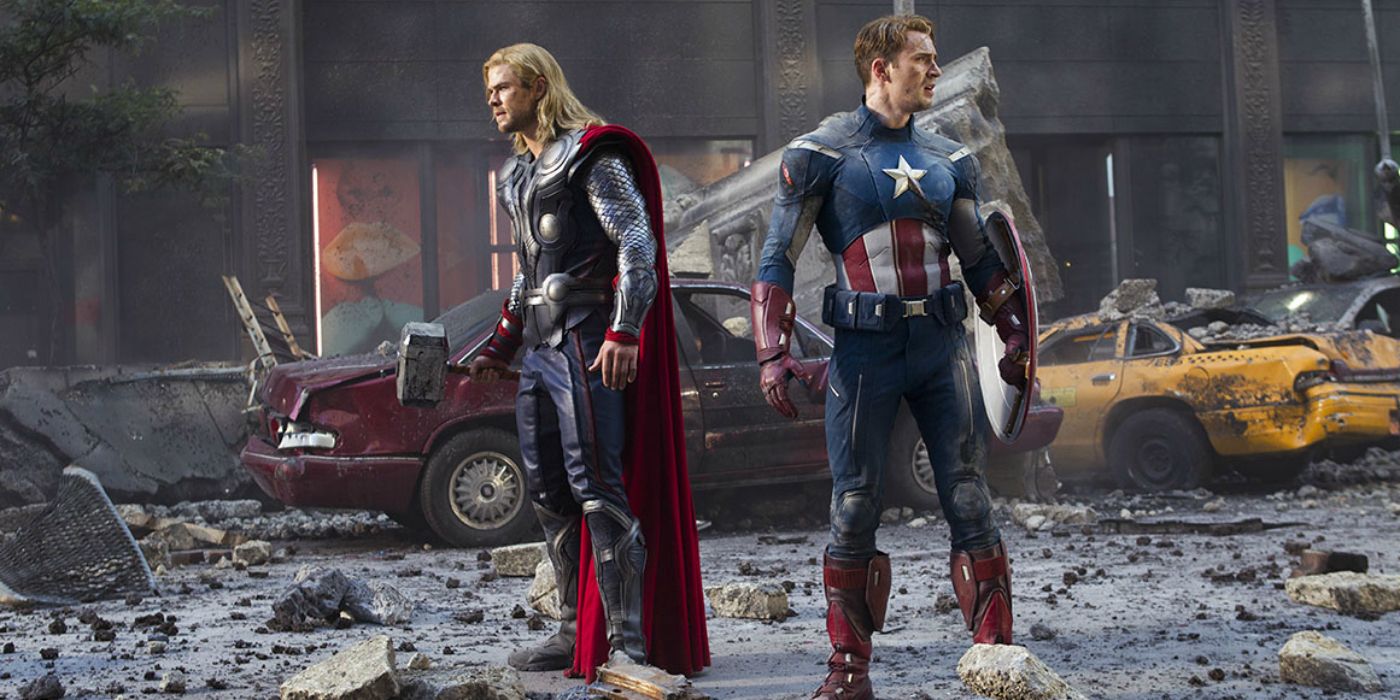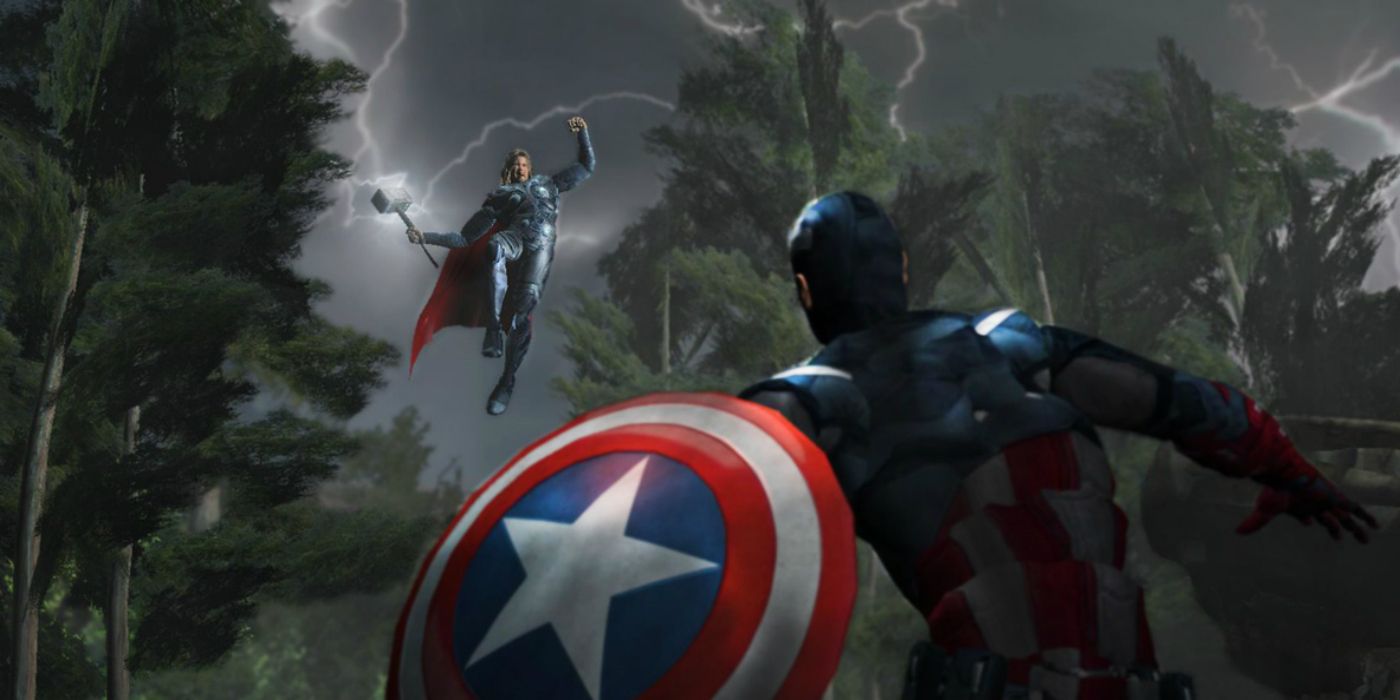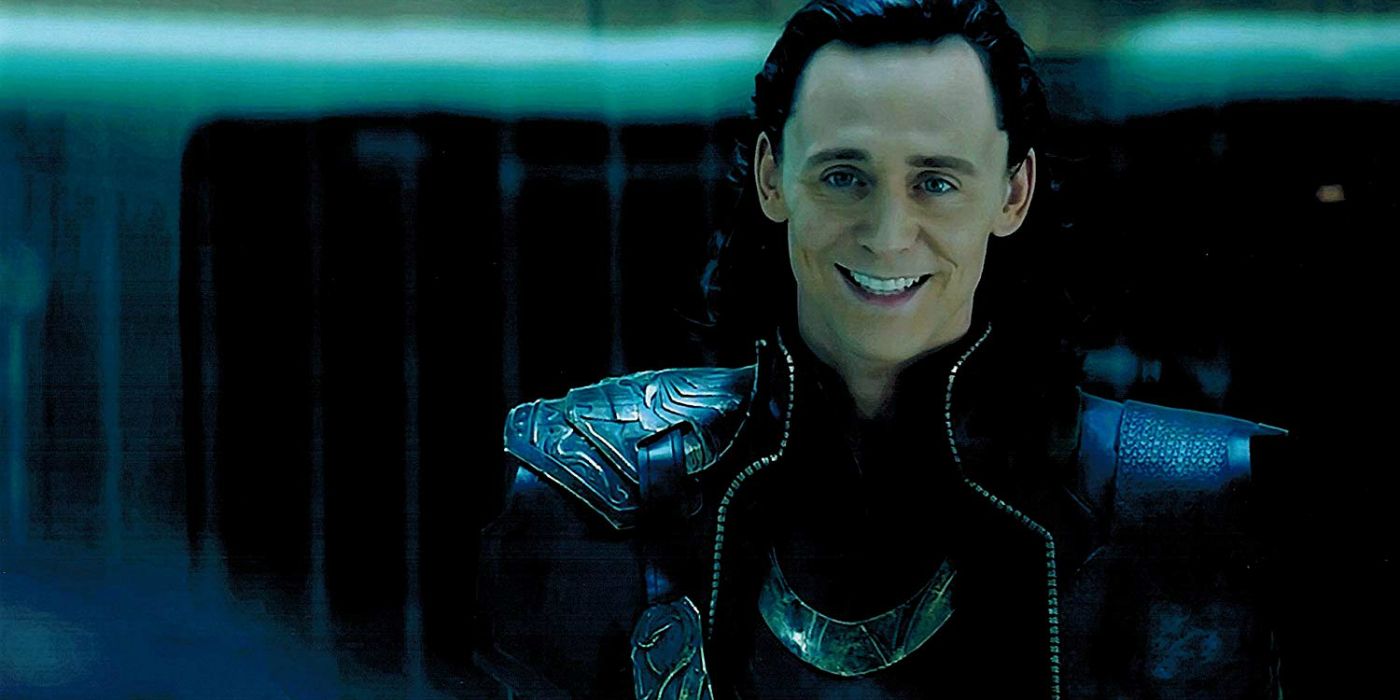Thor's role in The Avengers was almost cut down substantially - but, fortunately, Chris Hemsworth was cast for the part, and Marvel reconsidered. Marvel Studios has developed a reputation for playing the long game, but in truth, back during Phase 1 the studio was playing it by ear. It's not hard to spot the evidence for this; only one of the Phase 1 post-credits scenes even makes sense.
Phase 1 was something of a gamble. Marvel had put together a brand-new, relatively inexperienced film studio, and they were trying to make something that had never been done before; a shared universe of interconnected films, that ultimately built to a climax in a massive crossover film event. The pressure was intense, especially on The Avengers. If that hadn't worked, Marvel's entire strategy would have failed. As a result, Marvel put in a lot of effort trying to get it right, particularly when it came to the script. Their effort paid off; The Avengers grossed over $1.5 billion in the global box office, and the future of the MCU was secured.
But, precisely because The Avengers went through so many different iterations, it's fascinating to consider what roads Marvel didn't travel. One surprising fact is that the God of Thunder, Thor, almost had a much smaller role, which is ironic considering, by Avengers: Infinity War, Thor became one of the most popular Marvel heroes of all.
- This Page: Thor Originally Had A Much Smaller Role In The Avengers
- Page 2: Chris Hemsworth Saved Thor, But Loki Still Suffered
The Avengers Script Changed A Lot (Even Before Whedon)
Zak Penn is one of the most prolific writers of superhero comic book adaptations. He sold his first script, Last Action Hero, at age 23, and since then has been screenwriter on a whole host of superhero movies; he was involved (to varying degrees) with X2: X-Men United, Elektra, X-Men: The Last Stand, The Incredible Hulk, and The Avengers. Penn began work on the script for The Avengers all the way back in 2006, and it went through countless different iterations over the years, until at last he submitted his final draft in early 2010. When Whedon came on board, he took over as both writer and director. As Whedon admitted to GQ, "There was a script. There just wasn't a script I was going to film a word of."
Penn himself seems to have been a little disappointed by the experience. "We could have collaborated more," he noted, "but that was [Whedon's] choice. He wanted to do it his way, and I respect that." Not much is known about Penn's script, but it's reasonable to assume the overall structure was the same; the Avengers are up against Loki, they initially have a traditional superhero battle in the middle, and they team up for an action sequence at the end. But Penn has gone public about one crucial element; he wasn't convinced Thor would work, and actively tried to limit the God of Thunder's role in the franchise's first team-up film.
Zak Penn Tried To Downplay Thor In The Avengers
Back in the late 2000s, Marvel really wasn't confident Thor would be a good fit for their shared cinematic universe. Iron Man had been successful in part because it attempted to tell a superhero story in "the world outside your window," a maxim traditionally associated with Stan Lee's vision of Marvel Comics. That's why Tony Stark's origin story was moved to Afghanistan, and he wound up dealing with terrorists and corrupt industrialists; it's even why The Avengers ends in New York City. Marvel built the MCU on a scientific base, and Tony's more fantastical foes - like the alien dragon Fan Fang Foom - were relegated to clever Easter eggs in sequels. But how well would Asgard and the God of Thunder fit into this? Nowadays, after more than a decade of Marvel movies, viewers are used to the idea that each MCU film can feel like it's part of a different genre. But back when they were starting out, Marvel wasn't so sure this approach would pay off on the big screen.
The signs are all there in the first Thor film. The Gods of Asgard are reinterpreted as ancient aliens, long-lived beings who had visited Earth in the past and become the stuff of myth and legends. Asgardian "magic" is explained away using Arthur C. Clarke's maxim that any sufficiently advanced science would look like sorcery. "Your ancestors called it magic," Thor explains to Jane Foster, "You call it science. I come from a place where they're one and the same thing." Marvel was hedging their bets, avoiding going too far with the mysticism and fantasy, carefully trying to ensure it fitted with the science-fiction world of the previous films.
According to Penn, these concerns even affected the script for The Avengers. Although Loki would still be the Avengers' first villain - as in the comics - Penn actively tried to minimize Thor's role. "Originally I was trying to reduce how much Thor was in the movie," he observed in one interview, admitting that back then he really didn't think a big-screen version of Thor would work.
Page 2 of 2: Chris Hemsworth Saved Thor, But Loki Still Suffered
How Chris Hemsworth Saved Thor
And then Chris Hemsworth was cast as Thor, beating his own brother, Liam Hemsworth, to the part in a second round of auditions. Even after having gone to all this effort, though, Hemsworth balked at the sheer scale of Marvel's ambition.
"I was crossing the road in Vancouver ... and I remember the exact moment getting a call from from my lawyer and my manager saying 'You got the offer.' And then kind of going 'Oh wow, cool. So what is it?' 'It's a superhero thing and it's a six-picture deal.' And we were like 'that's a lot of films to sign up for. We should pass on this.'"
Fortunately for Marvel, Hemsworth relented and accepted the role. The minute he saw Hemsworth, Penn knew he had nothing to worry about. "I remember Chris Hemsworth walking through the Marvel offices," he recalled, "and being, 'Oh, my god, that guy is Thor... Once it was clear that, no, this is going to work and they were excited about it, then I did not [reduce Thor in the script]. I stopped doing that." The Thunder God's future was secured, and it was all because of the actor who was cast in the role.
Joss Whedon Still Doubted Loki
Chris Hemsworth may have sealed the deal for Thor, but Marvel still had their concerns about the Asgardian plot. When Joss Whedon took over The Avengers, he simply wasn't convinced that Loki could be a credible threat for the combined forces of the Avengers. "I... worried that one British character actor was not enough to take on Earth's mightiest heroes," he explained, "and that we'd feel like we were rooting for the overdog." As a result, Whedon toyed with another version of the script in which Loki teamed up with Ezekiel Stane, Obadiah Stane's son. Where Loki is a classic Avengers villain, Ezekiel Stane was only introduced in 2008, when he schemed to get revenge on Tony Stark for his father's death. Presumably Whedon took a similar route, perhaps by having Loki approach Stane to obtain the technology to manipulate the Tesseract. Whatever the case may be, Marvel's Kevin Feige nixed the idea, and the plot was tightened to focus on Loki again.
Whedon realized that the end of Kenneth Branagh's Thor had left Loki wide open as a character. The Trickster God had learned he wasn't a true Odinson, after all, and was now trying to carve out an empire for himself. What's more, Thor had ended with Loki plunging into a wormhole, and Whedon figured that experience would affect him as well. In the final script, Whedon found a clever way to make Loki a convincing foe: have him manipulate the Avengers into turning on one another, before triggering a full-on alien invasion of New York. The Avengers, as we know it, had finally taken shape - with both Thor and Loki taking center-stage.

